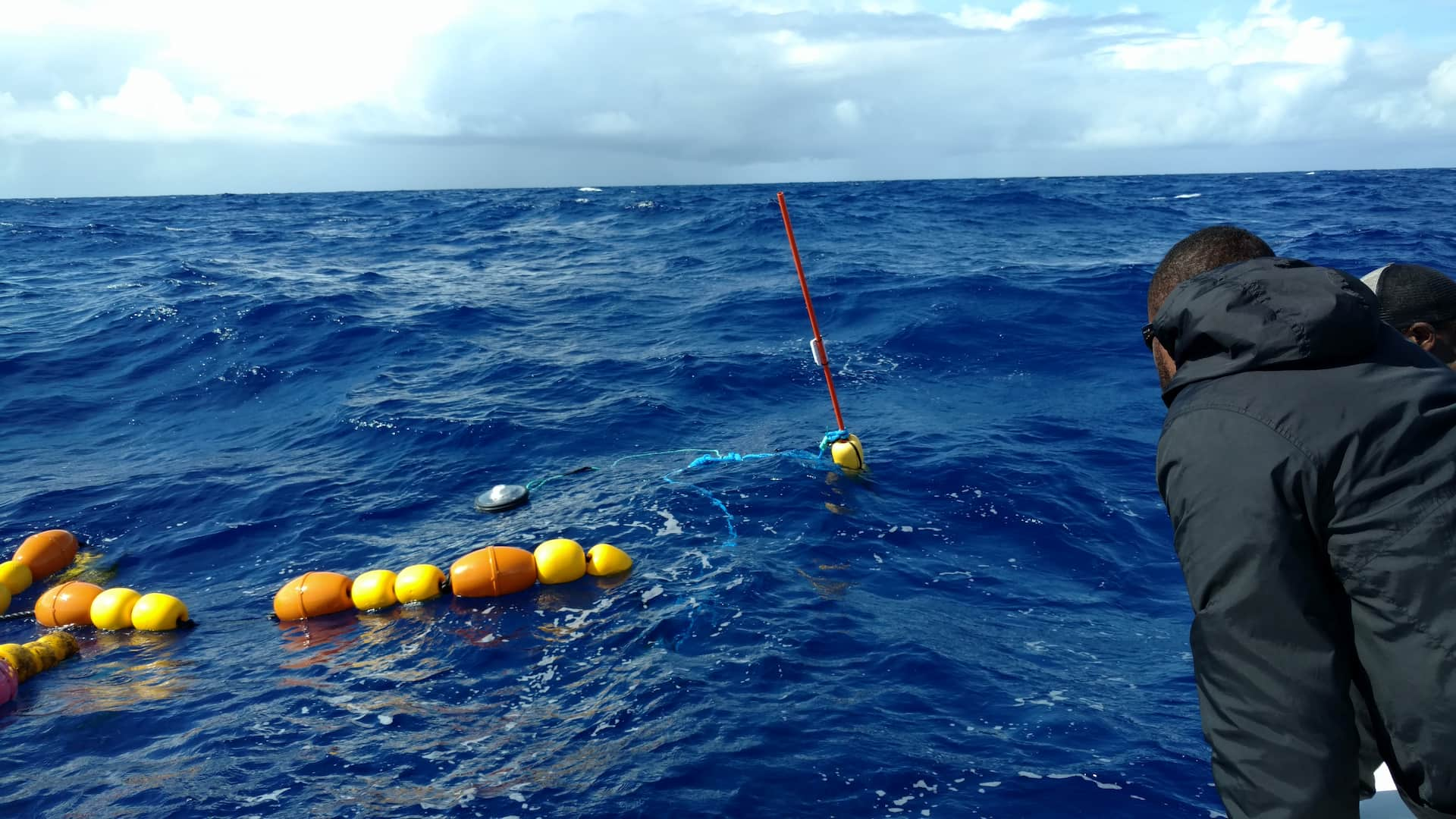In 2016, I first traveled to the island nation of Vanuatu with a mission: to understand the real-life impacts of ghost gear(abandoned, lost or otherwise discarded fishing gear) on the local communities.
When you look at Vanuatu’s remote location in the Pacific, I’m sure it comes as no surprise that fishing is a critical part of daily life there. In fact, some estimates have shown that over 75% of adults in Vanuatu engage in fishing of some kind, and in 2018, frozen fish fillets alone contributed to 55% of Vanuatu’s total export revenue.
Never miss an update
Enter your email and never miss an update
again or contact 1.888.780.6763
var form = document.getElementById(’email-signup-66f1cde933bfa’);
form.querySelector(‘.rsform__field–email’).addEventListener(“nb:result”, e => {
var nbStatus = form.querySelector(“[name=”nb_email_status”]”);
var nbDate = form.querySelector(“[name=”nb_validation_date”]”);
var currentDate = new Date();
nbStatus.value = e.detail.result.response.result;
nbDate.value = currentDate.toISOString().split(‘T’)[0];
grecaptcha.enterprise.ready(async () => {
var tokenField = document.querySelector(“#email-signup-66f1cde933bfa [name=”token”]”);
var token = await grecaptcha.enterprise.execute(‘6Lcmr3shAAAAAAVRlvJrsUufEEQuItzNDlkpmB2g’, {action: ‘verify’});
tokenField.value = token;
});
});
<!– –>
During my trip, I met with many local fishers to hear from them first-hand about the challenges they face, and in every conversation, one theme was abundantly clear: Ghost gear was threatening their way of life.
All the fishers I met saw nets and other gear washed up on beaches, draped over coral reefs, wrapped around the propellers of their boats and littered across precious fishing grounds. And they were right to be concerned—studies have shown that ghost gear is the deadliest form of plastic pollution to marine life. In some cases, and depending on the fishery, it accounts for a loss of up to 30% in harvestable fish stocks.
Ghost gear occurs wherever fishing takes place, but there are a number of reasons that small island developing states (SIDS) such as Vanuatu are disproportionately impacted by the harms of ghost gear.
For example, due to their limited land-based resources and remote locations, these countries are highly reliant on marine resources for food security and their economy. Therefore, when ghost gear threatens fish stocks and fishing sustainability, these countries take a greater hit to their economy and food sustainability.
Furthermore, the geography of SIDS makes them disproportionately vulnerable to the impacts of ghost gear. The fisheries along their coastlines are often threatened by hurricanes, storm surges and other climatic hazards. Many studies have shown that storms can increase fishing gear loss. In some hurricane-prone areas, gear-loss records have reached as high as 100% annually. Additionally, many island nations are close in proximity to ocean gyres. Ocean gyres can relocate ghost gear from its original location, depositing the gear along the coasts of island and coastal nations.

if(typeof window.oc_media_credits === ‘undefined’) {
window.oc_media_credits = {};
}
window.oc_media_credits[76123] = “Christina Shaw, Vanuatu Environmental Science Soceity”;
For those reasons, SIDS have been some of the countries most impacted by ghost gear, but they have also been at the forefront of advocacy to find solutions to this problem. Over one-in-three government members of Ocean Conservancy’s Global Ghost Gear Initiative® (GGGI) are small island nations, including the Dominican Republic, Montserrat, Palau, Samoa, Tonga, Trinidad and Tobago, Tuvalu and Vanuatu.
Over the years, our GGGI has worked with several island countries across the South Pacific and Caribbean, engaging local fishers, policymakers, academia and the private sector to implement best practices to prevent, mitigate and remediate the occurrence and impacts of ghost gear. This work has involved conducting fisher surveys, trialing gear marking technologies to track gear and retrieve it should it become lost, and hosting capacity-building workshops. The insights gained from working with these communities help inform practical solutions and ensure locals are effectively engaged throughout the process.
Despite the global impact of ghost gear and its disproportionate impacts on SIDS, there is currently no dedicated international agreement in place to address its impacts. Existing guidance is fragmented and often voluntary, with varying approaches across regions and nations.
For that reason, Ocean Conservancy is advocating for ghost gear to be included in the United Nations plastics treaty, currently under negotiation and entering its fifth and final session in November in Busan, South Korea.Ocean Conservancy and the Global Ghost Gear Initiative will continue to help lift up the voices of island nations within the negotiations and stand ready to assist with the implementation of the treaty after its ratification in 2025. Take action now—adding your name takes two minutes.
The post How Does Ghost Gear Affect Small Island Developing States? appeared first on Ocean Conservancy.

